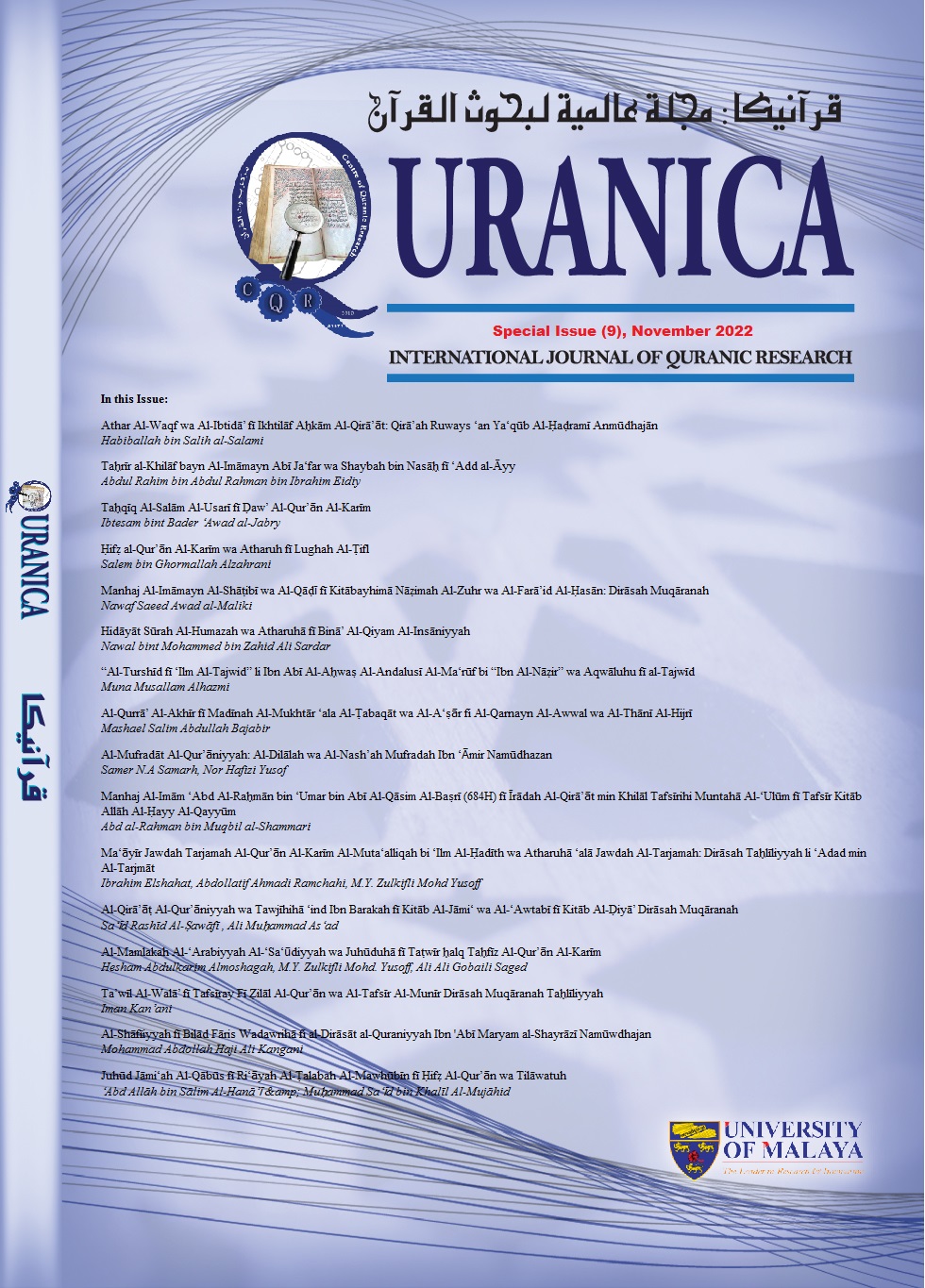Taḥqīq Al-Salām Al-Usarī fī Ḍaw’ Al-Qur’ān Al-Karīm
DOI:
https://doi.org/10.22452/quranica.vol14no2.11Keywords:
The Noble Qur’an, Family Peace, Domestic Violence, Pillars of the Family, Public Relations, Achieving PeaceAbstract
Family peace is one of the pillars of safety and peace, hence the concern of the Holy Qur’an with family peace, represented in everything It strengthens, builds and straightens in all its forms and types, and in warding off everything that undermines and destroys it.The thesis was divided into three sections, the first was on the definition of family peace and its types, and the second topic was on domestic violence and people who practice violence, the factors leading to domestic violence, the effects of domestic violence, and the most prominent groups exposed to domestic violence. Then the third topic is: Towards family peace, which includes: the elements of family peace, and the treatment of domestic violence. The aim of the research: Achieving family peace in the light of the Noble Quran and due to its great importance, and the prevalence of its different images in a relatively high. Conclusion: 1.The concept of family peace in the Noble Qur’an is a broad and comprehensive concept for everything that brings benefit and repels harm. 2. The family is the first nucleus of society, and then the nation; Hence, we find the great care of the Holy Qur’an on her and everything that is a reason for her safety. 3. Domestic violence has many types, factors and motives, all of which are addressed by the Holy Qur’an. 4. Domestic violence has many negative, dangerous and influential effects. 5. The foundations of the Noble Qur’an are major components of public relations that ensure the safety of the individual and society. 6. The Holy Qur’an treats domestic violence from any part of the family. 7. The Holy Qur’an’s treatment of violence emanating from these parties, if this family adheres to it to resolve security, safety, peace and stability in it. 8. The Noble Qur’an directs the spouses to everything that renounces violence. 9. Correcting and controlling some misconceptions that cause violence. 10. The Holy Qur’an shows how to deal with brothers in cases of disagreement, envy and estrangement; He urged justice between children and identified inheritances.
Downloads
Downloads
Published
Issue
Section
License
Disclaimer
QURANICA makes every effort to ensure the accuracy of all its contents. However, opinions, discussions, views and recommendations are expressed in this journal do not necessarily reflect the official policy of QURANICA or views of its editors or publishers. Therefore, QURANICA and its publishers will not be liable for any controversy may be arisen. The journal reserves the right, at its sole discretion, to change its terms and conditions of publications.
Copyright
It is a condition of publication that manuscript submitted to the journal have not been published, accepted for publication, nor simultaneously submitted for publication elsewhere. By submitting a manuscript, the author(s) agrees that copyright for the article is transferred to the publisher, if and when the manuscript is accepted for publication.






